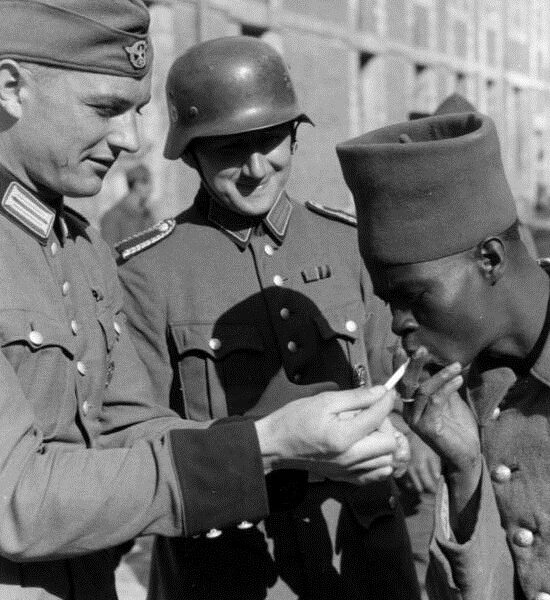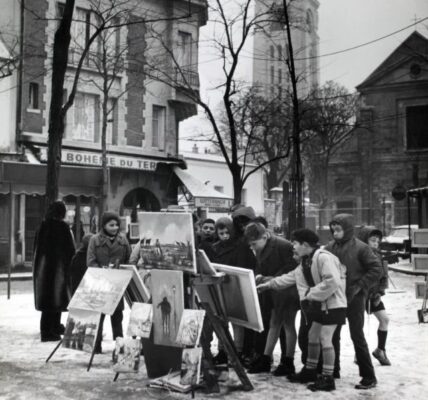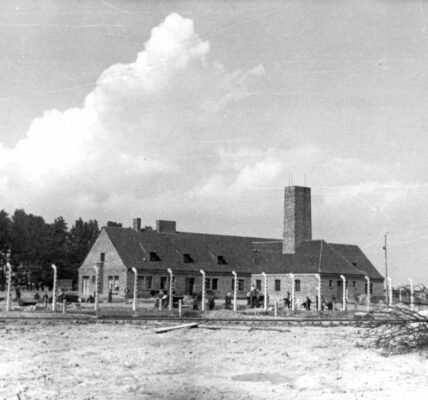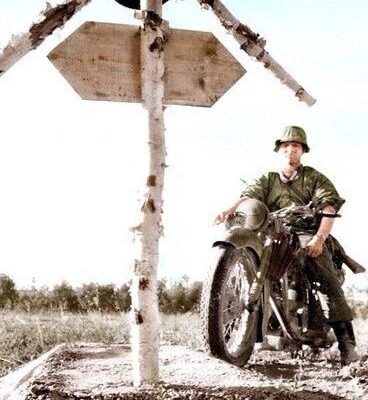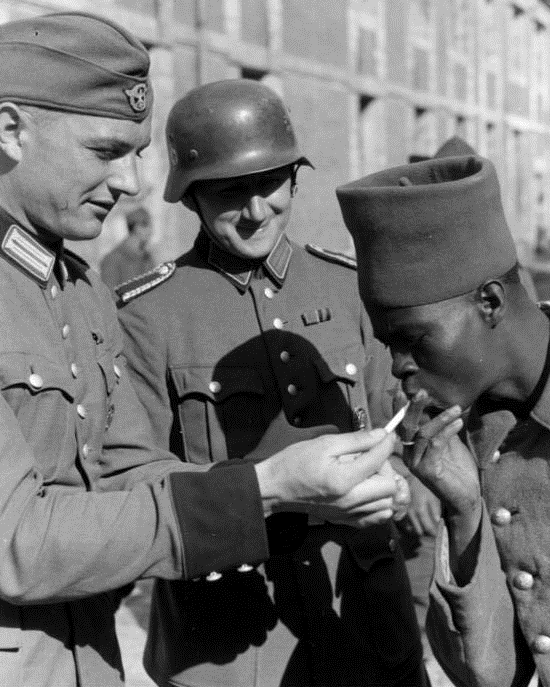

In 1940, France surrendered after a rapid advance by the German Wehrmacht in World War II. The country was divided into two zones: the occupied north under direct German control and the south, administered by the so-called Vichy government—a collaborationist regime under Marshal Pétain.
During this period, hundreds of thousands of soldiers from the French colonies—primarily from Africa (Algeria, Morocco, Senegal, etc.)—were captured. Among them were many Black colonial soldiers who had previously fought loyally for France.
The scene depicts a seemingly peaceful moment: German police officers smoking together with a French colonial prisoner of war—presumably an African soldier—in Vichy. The police were the uniformed police of the German Reich between 1936 and 1945 and later played a central role in carrying out repression and deportations.
Despite the apparent camaraderie, this image reveals the deep contradictions of the time: colonial soldiers fighting in the name of France were often racially discriminated against—both by the Germans and by their own army. Their treatment as prisoners of war was frequently worse than that of their white comrades.
This snapshot symbolizes the complex interweaving of colonialism, racism, and totalitarian rule. It reminds us how human encounters in times of war and violence are shaped by power relations, prejudices, and historical injustices.
